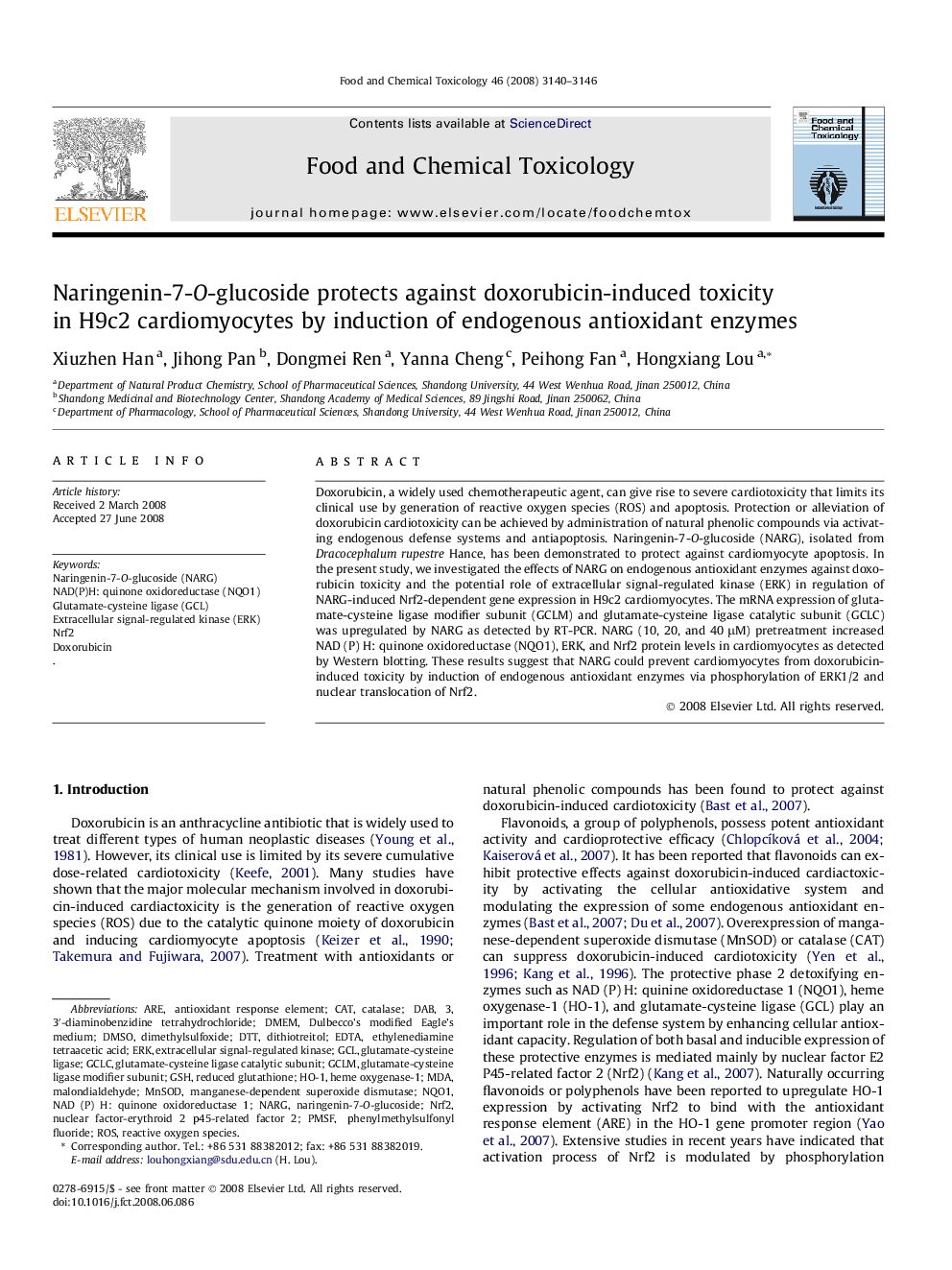| کد مقاله | کد نشریه | سال انتشار | مقاله انگلیسی | نسخه تمام متن |
|---|---|---|---|---|
| 2586913 | 1130913 | 2008 | 7 صفحه PDF | دانلود رایگان |

Doxorubicin, a widely used chemotherapeutic agent, can give rise to severe cardiotoxicity that limits its clinical use by generation of reactive oxygen species (ROS) and apoptosis. Protection or alleviation of doxorubicin cardiotoxicity can be achieved by administration of natural phenolic compounds via activating endogenous defense systems and antiapoptosis. Naringenin-7-O-glucoside (NARG), isolated from Dracocephalum rupestre Hance, has been demonstrated to protect against cardiomyocyte apoptosis. In the present study, we investigated the effects of NARG on endogenous antioxidant enzymes against doxorubicin toxicity and the potential role of extracellular signal-regulated kinase (ERK) in regulation of NARG-induced Nrf2-dependent gene expression in H9c2 cardiomyocytes. The mRNA expression of glutamate-cysteine ligase modifier subunit (GCLM) and glutamate-cysteine ligase catalytic subunit (GCLC) was upregulated by NARG as detected by RT-PCR. NARG (10, 20, and 40 μM) pretreatment increased NAD (P) H: quinone oxidoreductase (NQO1), ERK, and Nrf2 protein levels in cardiomyocytes as detected by Western blotting. These results suggest that NARG could prevent cardiomyocytes from doxorubicin-induced toxicity by induction of endogenous antioxidant enzymes via phosphorylation of ERK1/2 and nuclear translocation of Nrf2.
Journal: Food and Chemical Toxicology - Volume 46, Issue 9, September 2008, Pages 3140–3146